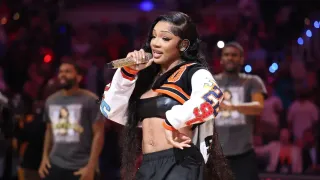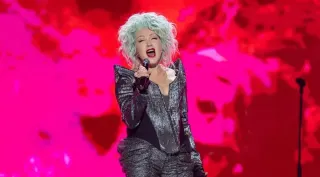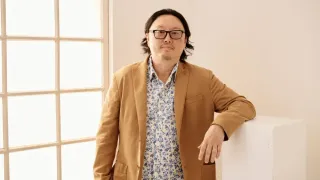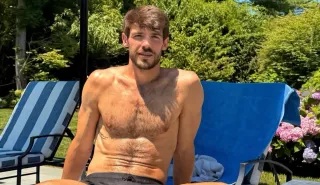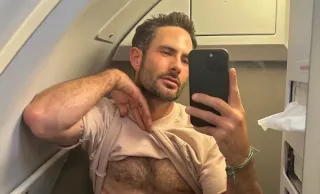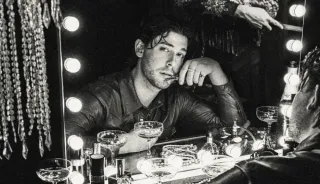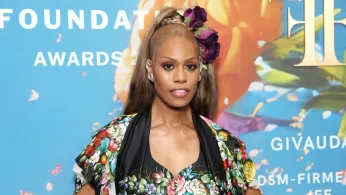
Jul 23
Laverne Cox Reveals Ex-Boyfriend Was a MAGA NYPD Officer
READ TIME: 3 MIN.
Laverne Cox, one of the most visible transgender advocates in entertainment, made headlines on July 22 by sharing unexpected details about a previous relationship. While promoting her new one-woman show “Gurrl, How Did I Get Here?” Cox revealed that she once dated a “blonde-haired, blue-eyed MAGA Republican voter who is a New York City police officer”. The relationship, which spanned nearly four years, began after the pair met on Tinder, and Cox says she was unaware of her partner’s political views or occupation at the outset.
Cox, now 52, discussed the relationship candidly in both social media videos and interviews, highlighting that her ex-boyfriend was 22 years her junior when they began dating. “We were madly in love. I did not develop any of his politics. I still have my own,” Cox stated, emphasizing that their opposing political beliefs remained separate from their romance.
The revelation quickly became a trending topic across social media platforms, with many LGBTQ+ community members and allies expressing surprise, disappointment, and even anger at Cox’s choice of partner. On Instagram and TikTok, users questioned how an outspoken trans advocate could maintain a long-term relationship with someone who supported policies and institutions historically harmful to Black and transgender people.
One commenter wrote, “‘We were in love’… you sure about that sis? When someone loves you, they honor and respect who you are, your experiences and will fight for your right to exist. His politics say otherwise. Just tell us the D was good, that’s more believable”. Others criticized Cox for appearing to speak about the relationship with pride, interpreting her comments as dismissive of the real-world consequences of MAGA-aligned politics on marginalized communities.
Facing mounting backlash, Cox addressed the controversy via Instagram Live, offering additional context and reflecting on the complexities of love across political and cultural divides. She explained that while their politics differed sharply, she fell in love with a person, not a platform. “I fell in love with a human being who had very different views than mine. We kept politics out of our relationship, but that didn’t make the differences any less real,” Cox said.
Cox’s comments have sparked broader conversations about the boundaries of love and loyalty within the LGBTQ+ community, especially for those navigating intersectional identities and relationships. The revelation has prompted many to question whether it is possible—or ethical—for LGBTQ+ people to maintain relationships with those whose beliefs may directly oppose their own rights and dignity.
The story has resonated widely because it surfaces deep, ongoing tensions in the LGBTQ+ community regarding identity, safety, and the impact of political affiliations. Advocates and commentators note that while LGBTQ+ individuals often face pressure to defend their partnerships, the stakes are uniquely high when those relationships cross lines of political ideology that have tangible consequences for queer rights and safety.
Some see Cox’s experience as a cautionary tale about the limits of separating love from politics. Others argue her story demonstrates the complexity and diversity of LGBTQ+ lives, which do not always align with prevailing narratives about community solidarity or ideological purity.
At the same time, many have voiced support for Cox’s candor and willingness to share a difficult part of her personal history, emphasizing the importance of transparency, vulnerability, and learning from lived experience. As Cox prepares for the debut of “Gurrl, How Did I Get Here?” at New York City’s City Winery on July 28, her story is likely to remain a point of reflection and debate for LGBTQ+ audiences nationwide.
Ultimately, Laverne Cox’s revelation underscores the ongoing challenges facing LGBTQ+ people as they navigate love, politics, and public scrutiny. Her openness has reignited essential conversations about the personal and political choices queer individuals make, and the expectations placed upon public figures to represent community values.
For many, Cox’s story is a reminder that LGBTQ+ lives are as nuanced and varied as any other—and that love, in all its forms, remains both radical and deeply complicated.
